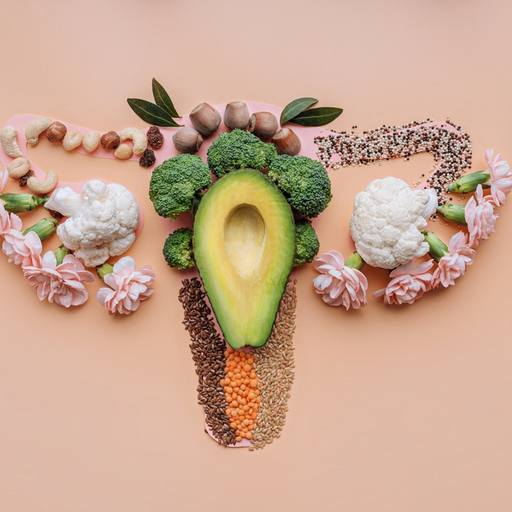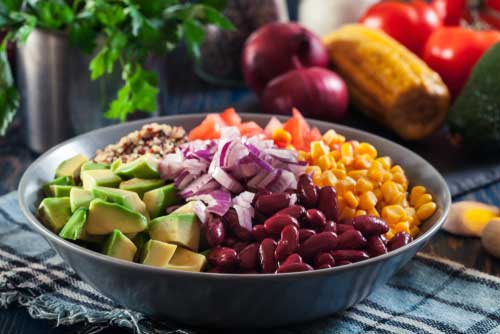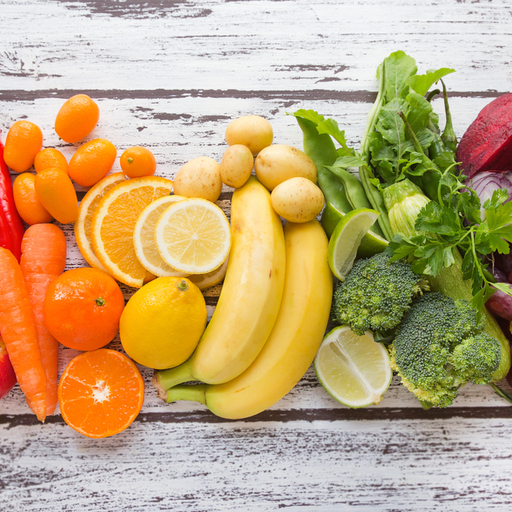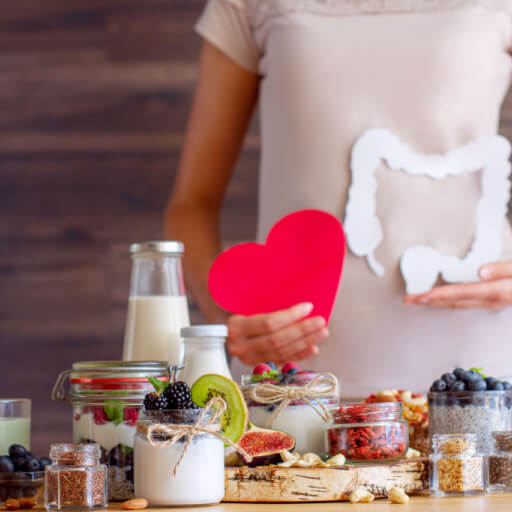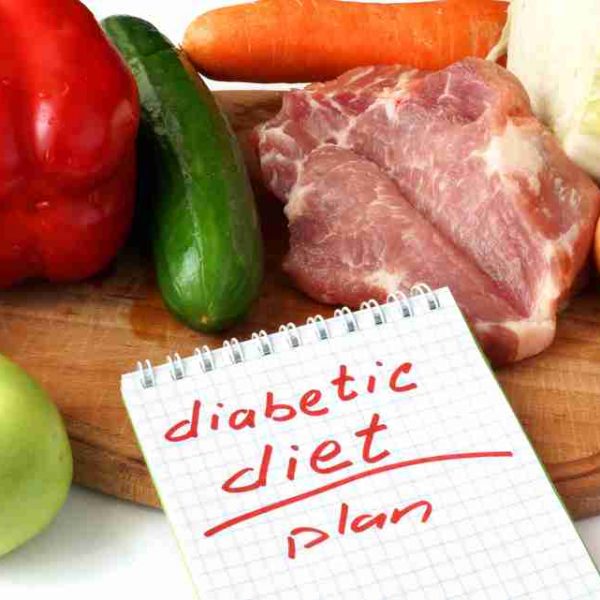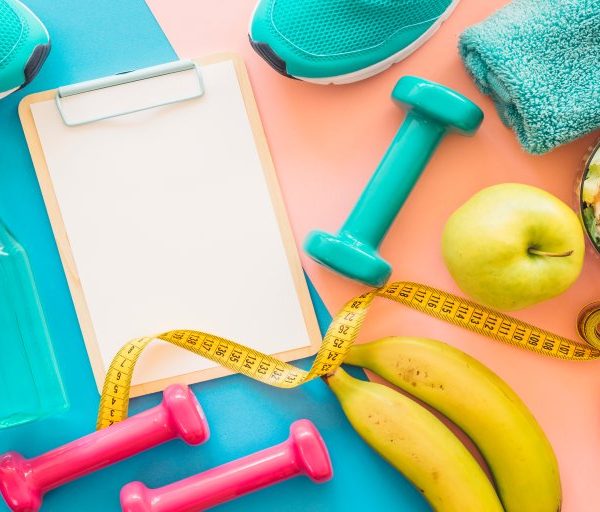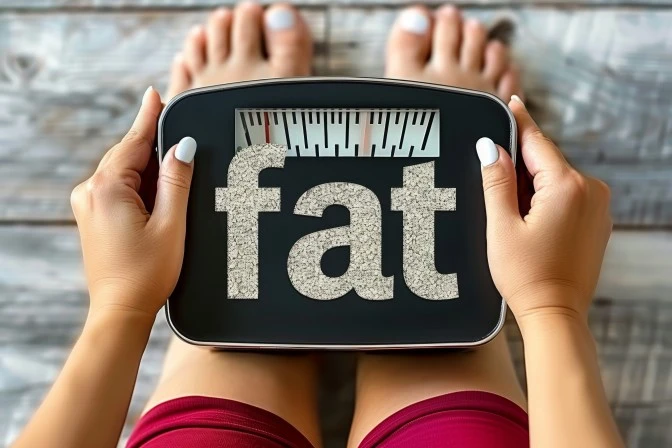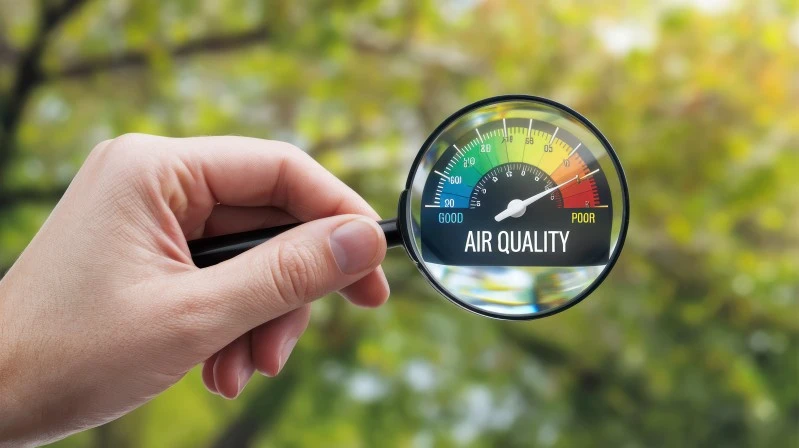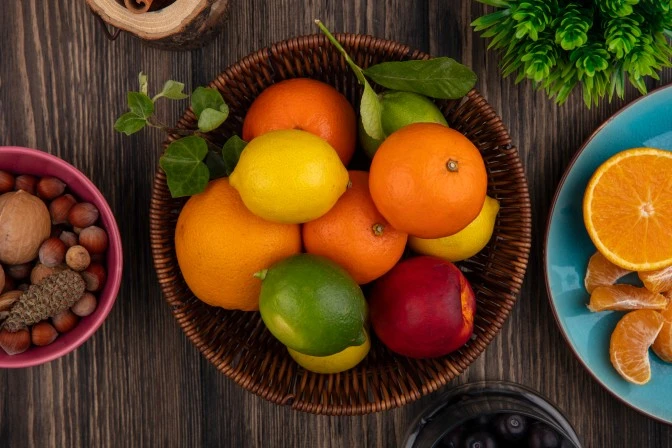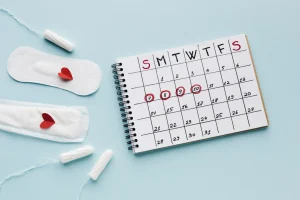
Surfing the crimson wave during that time of the month, periods can be an uncomfortable experience for some women. Mood swings, abdominal cramps, headaches, body pain, acne, dizziness, nausea, water retention, bloating, fatigue, depression, anxiety, stress – you name it; these symptoms continue to trouble women.
Why Nutrition Matters During Your Period
Every woman has gone through period related issues like inflammation, bloating, cramps, low energy levels, etc. During this time of the month, what you eat plays a vital role in how your body functions.
- The loss of blood your body goes through during periods can reduce iron levels which causes fatigue.
- The body is inflamed which causes issues like cramps and hot flashes
- Hormonal changes affect mood
Women face these and multiples other issues to different degrees during menstruation. Having foods that uplift your mood, balance iron and are anti-inflammatory in nature makes it easier for your body to deal with these changes.
What to eat during your period
Your diet can have a direct impact on your hormonal changes, which can aggravate some of the aforementioned symptoms. Make the following dietary changes to reduce period symptoms:
-
Leafy green vegetables:
When blood is lost every month during menstruation, iron is also lost with the red blood cells. If the blood flow is too heavy and iron is not replenished in your cycle, then iron deficiency can lead to anemia. To avoid this, include leafy green vegetables in your meals, such as kale, collard and spinach, which is a powerhouse of magnesium, vitamin B6, and vitamin E, further helping you fight menstrual cramps.
-
Dark chocolate:
You never need a reason to chomp away on a bar of chocolate. Dark chocolate is a great source of iron and magnesium, which helps in reducing the severity of premenstrual syndromes (PMS).
-
Nuts:
Nuts are rich in omega-3 fatty acids and are loaded with protein. Nuts keep you feeling fuller for a long period of time and sustain your energy levels. They also contain magnesium and other vitamins. You can either have plain nuts or include them in your salads or smoothies.
-
Turmeric:
Turmeric is a great anti-inflammatory spice that can reduce bloating. Curcumin is its active ingredient, which, apart from its many medicinal benefits, can also soothe premenstrual syndromes.
-
Fruits rich in water and vitamins:
Consume fresh watery fruits to stay hydrated. Eating sweet fruits can help you refrain from eating refined sugar. Therefore, your blood sugar level stays normal and does not spike.
Hydrate plenty. Drink a lot of water, especially during your periods, to prevent dehydration headaches, a common symptom of menstruation, and to reduce the chance of your body retaining water.
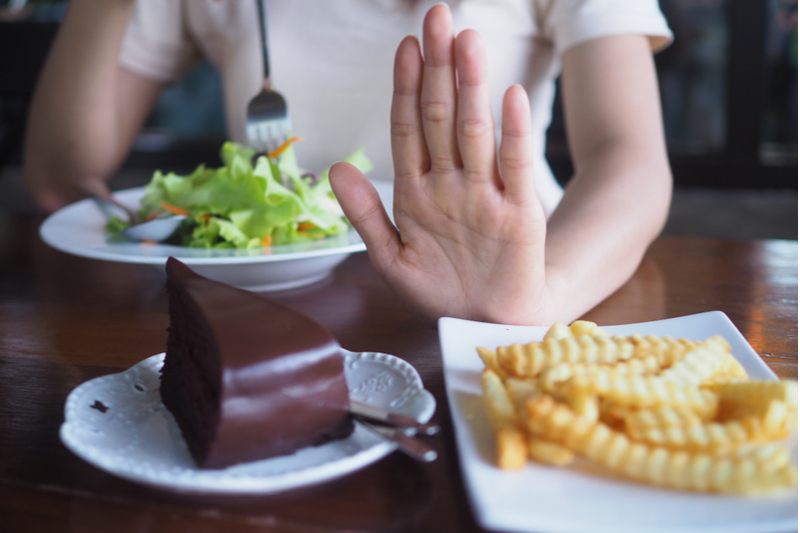
Other beneficial foods to eat during your period
- Chicken and fish: Lean meats like chicken are rich in iron and are considered high quality protein which helps maintain your energy levels during periods. Oily fish like salmon, mackerel, sardines have Omega 3 fatty acids that reduce inflammation and regulate your mood
- Yogurt and tofu: Yogurt is anti-inflammatory in nature and being a probiotic also aids digestion and reduces bloating. It is a good source of calcium, vitamin D and B. Tofu is a vegan alternative rich in calcium for people who might be lactose intolerant.
- Legumes (lentils & beans): Lentils and beans are an excellent source of fiber that is known to regulate your bowel movements. They are also a good source of iron and plant based protein.
- Flaxseed oil: Flaxseed oil keeps you calm and the cramps at bay. The phytoestrogens in flaxseed oil balance the levels of estrogen and progesterone which eases PMS symptoms.
- Herbal teas: Herbal teas like chamomile can help you reduce anxiety, ease cramps and work almost like muscle relaxants. Teas like ginger, tulsi and peppermint help ease digestion and bloating.
5 foods to avoid during your period
- Spicy foods: Spicy foods can cause stomach pains and diarrhea. Fight your cravings. Avoid spicy and salty foods during your menstrual cycle, as they lead to water retention and bloating.
- Sugar: Watch your sugar intake. Have sugar in moderation, as a spike in energy can worsen your mood swings.
- Red meat: During periods, your body produces prostaglandins. These compounds help your uterus contract and shed the uterus lining, resulting in your menstrual flow. High levels of this compound available in red meat can cause cramps.
- Refined grains and processed foods: Steer clear of having pasta, noodles, or bread as they interrupt your blood sugar and appetite control. Processed foods like chips or biscuits contain sodium. So, it is best to avoid salt.
- Alcohol: Avoid consuming alcohol as it causes digestive issues, headaches, nausea, diarrhea, and dehydration.
- Ice-Cold Drinks: Very cold beverages like chilled sodas or juices can sometimes worsen cramps and stomach discomfort.
- High-Fat Dairy: Full-fat milk, cheese and cream can make digestion slower and worsen bloating during periods.
- Artificially Flavoured or Packaged Foods: Foods with additives, preservatives or artificial flavours can irritate your stomach and increase discomfort.
Other foods to limit during your period
- Excess salt: Excessive salt leads to water retention which can lead to bloating, puffiness and discomfort.
- Coffee & caffeine: Caffeine dehydrates and dries up your body. It might sound like a good quick fix to feel more energetic, but the crashes during periods are worse. It can constrict blood vessels, increase anxiety, cramps and cause indigestion and palpitations and disturb your sleep.
- Foods that don’t suit your body: Listen to your body and avoid foods that don’t generally do you good, cause indigestion or bloating.
Nutrients essential during periods
It is suggested that diets rich in calcium, vitamin D, and omega-3 fatty acids, like fish and foods low in animal fat, caffeine, and salt, may reduce the risk of painful periods. During periods, several essential nutrients can help support your overall health.
- Iron is crucial for hemoglobin formation in the blood, which helps transport oxygen throughout the body. Some good sources of iron include spinach, beans, lentils, fish, meat, poultry, and fortified cereals.
- Calcium can keep bones and teeth strong and prevents the risk of osteoporosis later in life. Calcium can be found in milk products, leafy vegetables, fortified cereals, and orange juice.
- Vitamin D aids in calcium absorption and is vital for your bone health. Exposure to sunlight, fatty fish, fortified dairy products, and cereals are powerhouses of vitamin D.
- Vitamins B6 and B12 help maintain energy levels and reduce fatigue during periods. Eggs, poultry, fish, meat, dairy products, whole grains, and fortified cereals – all these foods contain these nutrients.
- Magnesium maintains muscle and nerve function and regulates blood sugar and blood pressure levels. Magnesium can be found in nuts, seeds, leafy green vegetables, and whole grains.
- Omega-3 Fatty Acids help lower inflammation and ease cramps. Fish like salmon, flaxseeds, walnuts and chia seeds are good sources.
Try light cardio, yoga, or exercises for period pain relief. Hot compresses and massages can help a great deal in soothing body pain.
Conclusion: Building a Period-Friendly Diet
By building a period-friendly diet, you can avoid many common issues linked to menstruation. A diet rich in iron, high quality protein, calcium and vitamins will have you feeling lighter and full of energy during your cycle. Knowing what suits your body and avoiding what doesn’t, and staying well hydrated, can make your periods easier to manage and more relaxed.
Key Takeaways
- During your period, consume leafy green vegetables, nuts, and fruits.
- However, foods to avoid include spicy foods, red meat, and sugary items.
- Essential nutrients during this time are iron, calcium, vitamin D, vitamins B6 and B12, and magnesium.
Frequently Asked Questions
Yes, milk is a great source of Vitamin D and calcium and can improve your sleep. However, if you are lactose intolerant or if dairy worsens your bloating, please avoid it.
Yes, chocolate is high in magnesium and iron and can uplift your mood during the cycle and reduce anxiety. But not all chocolate is good for you, it is recommended to eat chocolates with higher cocoa content.
Foods rich in magnesium, omega fatty acids and calcium can reduce period cramps. Leafy greens, nuts, seeds, fish and turmeric are some of the top choices. Hydrating with water and herbal teas also helps ease cramps.
Yes, it is better to avoid caffeine during menstruation.
A healthy balanced diet can definitely affect your flow in a good way. Avoiding the consumption of processed food, saturated fats and sugar can help bring down the issues linked to PMS drastically.
Popular Searches
Natural Beta blockers | How to cure depression | Summer activities for kids | High bp symptoms | HIIT workout | How to increase platelet count | Dash diet | Systolic and diastolic blood pressure | High blood sugar symptoms | Tabata workout | Push ups for beginners | Benefits of zumba | How to prevent breast cancer | Homeopathic medicine for asthma | Fruits to avoid in pcos | Neck pain relief exercises |Yoga for heart | Healthy soup recipes | Anti aging foods | Vitamin rich foods
Subscribe to the Activ Living Community and stay up to date with the latest health tips and trends through expert videos, podcasts, articles, and much more in nutrition, fitness, mindfulness, and lifestyle conditions like Asthma, Blood Pressure, Cholesterol, and Diabetes.





 1800-270-7000
1800-270-7000

